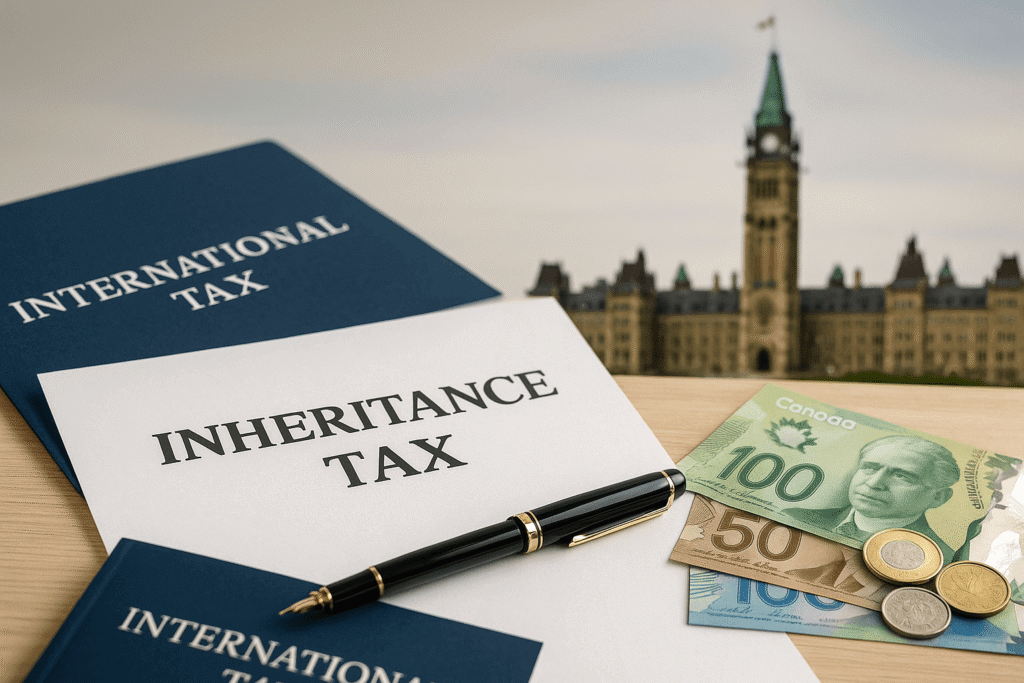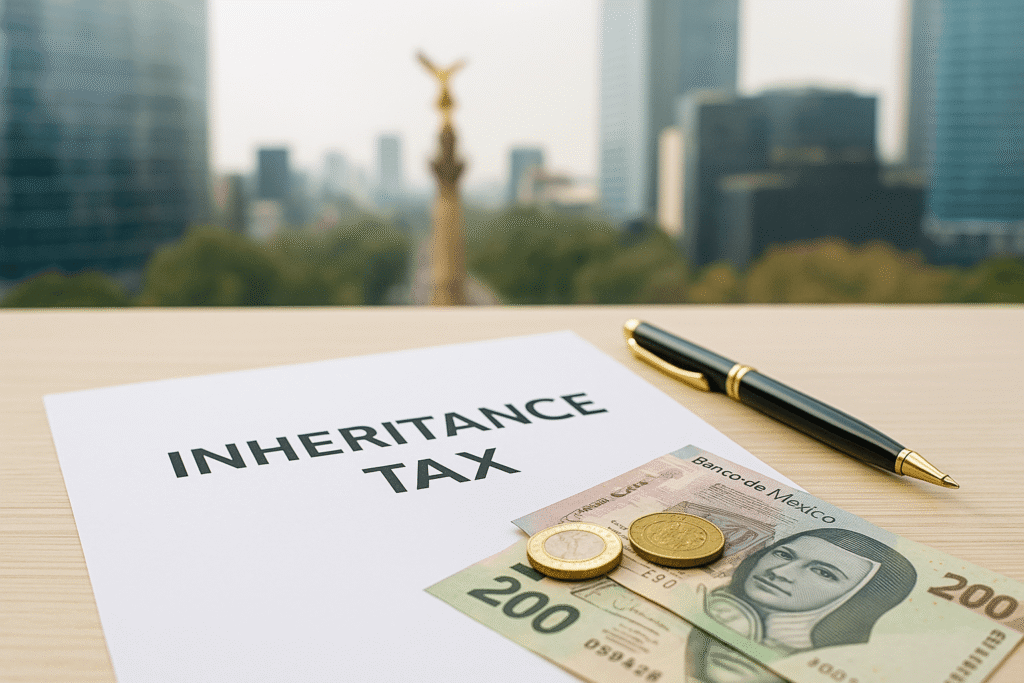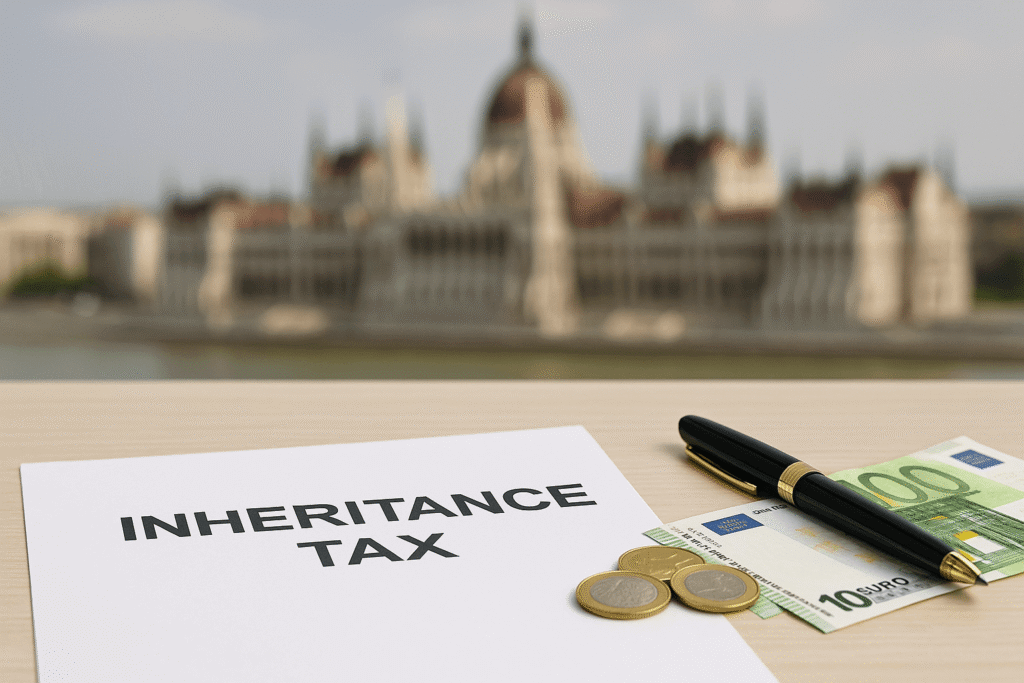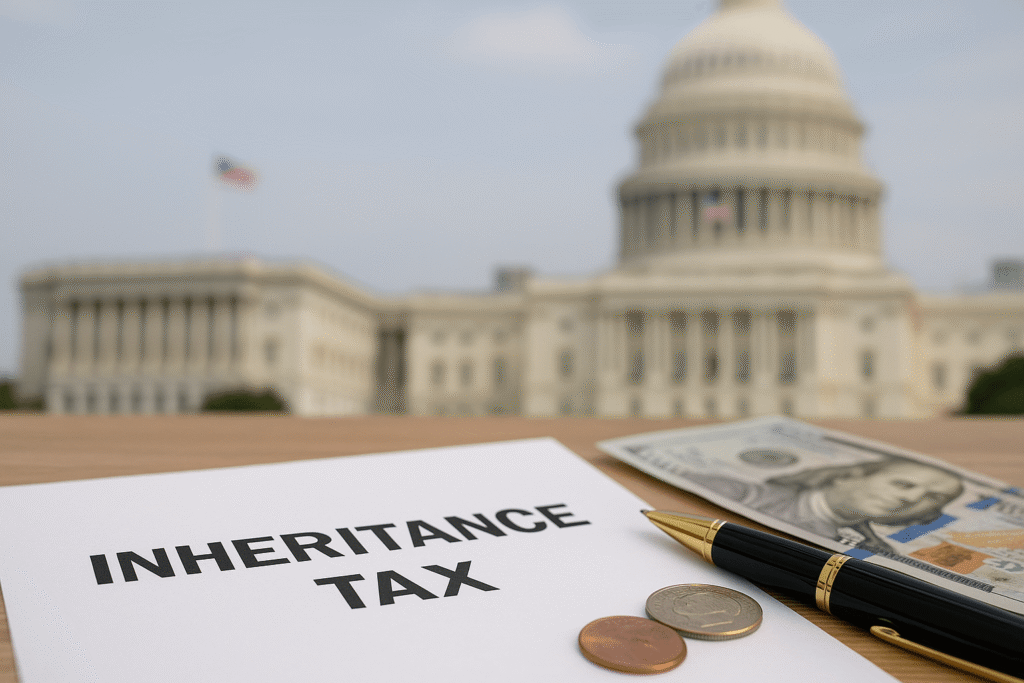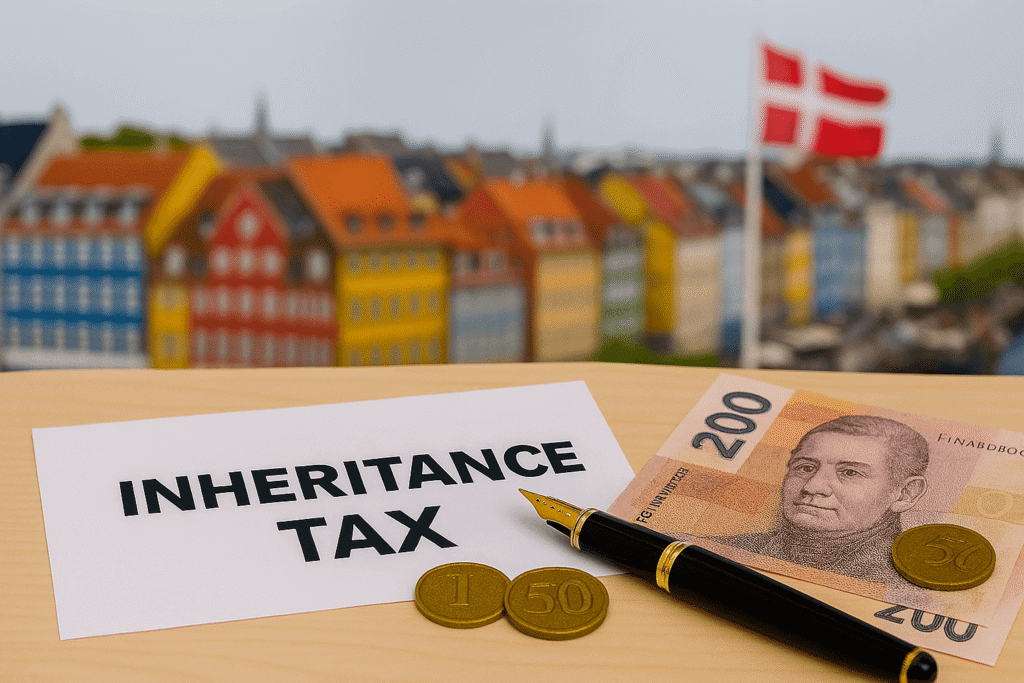If you own property in Canada (Toronto, Montreal, Vancouver, etc.) or are expecting to inherit property in this country. In that case, it is essential to be aware of the legal and tax implications associated with the process of inheriting the estate. Being aware is necessary because even non-residents of Canada may be required to pay tax under local law.
There is no inheritance, gift, or estate tax in Canada. However, upon the death of the decedent, their assets are treated as if they were sold at the time of death, and therefore, capital gains tax is required to be paid on all capital gains accumulated up to the time of death. This effectively creates a significant tax liability on the decedent’s estate.
Canada has complex estate tax rules with significant implications for heirs. Understanding Canadian law in advance and planning for wills, estates, and gifts during your lifetime can significantly reduce your tax exposure when transferring assets between generations. Furthermore, inheritance tax planning may prevent legal disputes, delays in the inheritance realization process, and unexpected demands from various authorities.
What’s the Difference Between Inheritance Tax and Estate Tax?
Estate Tax – Imposed on the deceased’s assets before they are transferred to the heirs.
Inheritance Tax – Applies to all assets received by the heir.
Capital Gains Tax on Estates in Canada
There is no inheritance, gift, or estate tax in Canada. However, upon a person’s death, all their assets are considered to have been sold at market value at the time of death, even if no actual sale occurred. The process requires the estate to file a final tax return, which includes all the income the decedent earned up to the time of death.
All funds received from the estate assets are required to pay tax liabilities before being transferred to the heirs. Only then are the remaining funds transferred to the various heirs. All assets included in the estate are considered to have been sold at fair market value at the time of death, whether it is real estate, businesses, land, investments, or even RRSPs. It is essential to note that each of these assets will generate income differently, and not all wills are taxed in the same manner.
Therefore, although there is no inheritance tax in Canada, the estate may be liable to capital gains tax in such a situation. Similarly, assets of someone who is no longer considered a Canadian resident (such as Canadian real estate or securities) may also be subject to capital gains tax upon death.
It is recommended that after submitting the final tax return and paying the taxes, you ensure that you receive confirmation from the Canada Revenue Agency (CRA). This confirmation verifies that the tax has been paid and that no additional taxes are due. After receiving it, you can continue distributing the estate assets to the heirs.
How Does Estate Tax Work In Canada?
As mentioned, Canada does not have a direct inheritance tax, but the Canada Revenue Agency (CRA) imposes a tax on estates through 3 primary mechanisms:
- Capital Gains Tax: Assets are treated as “sold” at fair market value at the time of the decedent’s death, which triggers a capital gains tax on any increase in the value of the asset since the original purchase.
Capital gains tax on inheritance applies to the growth in the value of assets, such as shares, real estate (excluding primary residences), and other investments. The taxable portion is 50% of the capital gain, which must be reported on the deceased’s final tax return.
For example, if an investment property was purchased for CAD$1,000,000 and is worth CAD$1,500,000 at the time of the decedent’s death, there is a capital gain of CAD$500,000. Half of this gain (CAD$250,000) will be added to the decedent’s taxable income for their final tax return.
As mentioned, in Canada, only 50% of the capital gain amount is taxable, but this is at your marginal tax rate, not at a fixed rate, as is customary in Israel. In that the gain amount will be added to the decedent’s total taxable income in the tax year, and both the federal tax rate and the tax rate of the relevant province will apply to it.
- Taxation of RRSP/RRIF accounts: The full value of registered accounts becomes taxable income.
Registered Retirement Savings Plans (RRSPs) and Retirement Income Funds (RRIFs) – Generally, the full value of these accounts is considered income at the time of death and is fully taxable.
Capital gains tax can result in a significant tax burden on the estate, as the entire value of the RRSP or RRIF is added to the deceased’s income for the final tax return. However, there are exceptions to this rule, particularly when these accounts are transferred to a surviving spouse or an eligible dependent child or grandchild.
When transferred to an eligible beneficiary, the tax can be deferred, allowing for a more tax-efficient transfer of these assets. This plan highlights the importance of carefully designating beneficiaries in estate planning.
- Provincial property management tax: varies by province (for example, 1.5% in Ontario for properties over $50,000).
When Is Tax Payment Deferred?
- If the testator has a surviving spouse, under certain conditions, unregistered capital assets can be transferred to them without the need to report capital gains as income. This property will therefore not be subject to tax until the surviving spouse dies. The process is similar to tax deferral. There are no forms to fill out; assets left to a spouse roll over automatically.
- For RRSP and RRIF investments, if an eligible person is designated as a beneficiary, the investment income does not need to be reported, and any tax is deferred. Eligible beneficiaries include a spouse or common-law partner, a financially dependent child or grandchild (under age 18), or a mentally or physically disabled child or grandchild of any age.
- Exemption for the principal residence. The capital gain, or profit, on the deceased’s principal residence is not taxable. If the deceased had more than one residence, a professional can calculate the capital gain on all residences and then choose the option that involves paying the lower tax.
- Life Insurance: The death benefit paid to beneficiaries under a life insurance policy is not taxable. This amount may be included in the estate, used to pay any debts, or used to cover taxes so that heirs do not have to sell inherited assets.
Inheritance Tax in Israel vs. Canada
In Israel, like Canada, there is no estate tax or inheritance tax. However, unlike in Canada, only upon the actual sale of the property may capital gains tax be imposed on the full value of the inheritance received.
The tax treaty between Israel and Canada includes provisions that prevent double taxation; however, it is essential to plan reporting and filing accurately to avoid double payment.
To read the Israel-Canada Tax Treaty in English on the Ministry of Finance website, click here.
Making A Will in Canada – The Key to Tax Savings and Avoiding Disputes
Inheritances do not always pass smoothly to their heirs. Sometimes it is necessary to take complex procedural steps to issue an inheritance order or obtain a permit to realize the assets.
Drafting a well-organized will is not just a matter of personal preference; it is an integral part of estate tax planning. A will can ensure that assets are passed smoothly and efficiently to heirs. The will should include the testator’s wishes but should also be adapted to the requirements of the law so that its validity is not impaired.
When drafting a will, it is often possible to choose the law that will apply to it. This choice can have a significant impact on the planning of the inheritance and its future implementation.
Without planning, this means that the law that will apply to the testator’s assets will be the law of the testator’s last and principal place of residence. For example, if his previous place of residence is in Canada, Canadian law will apply to his inheritance in Israel.
In Canada, different provisions may apply in each of the Canadian provinces; therefore, it is recommended to consult with experts in the field.
If you own property in Canada, we recommend that you make a will to ensure that the transfer of your assets is as smooth as possible. A will can prevent misunderstandings or lengthy legal processes and ensure that the process continues in an orderly manner even after the testator’s death.
Did You Receive an Inheritance in Canada?7 Steps to Properly Realize an Inheritance from Canada
1. Clarification Of Factual and Legal Background
First, you must check the type of property that is to be inherited, its location, the identity and status of the heirs, the value of the property, and more.
2. Checking The Date and Location of The Inheritance Realization
It is necessary to examine whether it is worth selling the property now, and if so, where it should be sold – in Canada or Israel?
3. Regulatory and Banking Aspects
Checking the costs of money transfers, determining if it is necessary to open an account in Canada or another country to transfer funds, and identifying any required permits is recommended.
4. Planning The Transfer of The Property
It is necessary to consider whether to transfer the property itself or its consideration, and what the tax implications are, including exemptions and deductions.
5. Avoiding Double Taxation
In light of the existence of a double taxation treaty, it is recommended to check whether a mechanism applies for crediting tax paid in Canada against tax liability in Israel. It is essential to ensure that reporting is done correctly and accurately to avoid double payment.
6. Examination of Future Impacts on The Property
Examining the future effects on the property is advised. For example, in many cases, a future sale of the property will be subject to capital gains tax in Israel as well.
7. Transferring The Property to Israel
Performing all necessary actions, submitting documents, dealing with banks in Canada and Israel, and transferring the property.
How We Can Help?
The goal is to transfer the inheritance to heirs in Israel in the most tax-efficient manner, while addressing legal issues in both Israel and Canada, as well as banking and regulatory concerns. For example, is it worth realizing a particular asset in Canada or transferring it to Israel? How can inherited money be transferred to a bank account in Israel? How can the various exemptions between heirs be utilized? Should gifts be given during one’s lifetime? Should a trust be established? And more. Strategic planning, as mandated by law and tax treaties, is essential to minimize tax liabilities.
For example, you can minimize estate tax by using trusts. A trust holds and protects assets, allowing you to control how and when they are distributed. In Canada, you can spread the tax burden over several years, and there are even different types of trusts with other tax benefits.
Also, unlike many countries, Canada does not have a gift tax, which makes the use of gift distribution particularly attractive. This means that an asset owner can transfer their assets to their future heirs while still alive without incurring any immediate tax consequences.
The firm Nimrod Yaron & Co. has extensive experience in personally and professionally supporting Israelis with assets or inheritances in many countries around the world, including Canada – from the initial planning stage through dealing with authorities in both Canada and Israel, to transferring the inheritance funds to the heir’s bank account.
We collaborate with all relevant professional entities in Canada and Israel, providing customized legal solutions from both a tax and banking perspective, tailored to the specific circumstances of each case.
Suppose you have inherited property or wish to bequeath property in Canada in the future. In that case, our team of lawyers specializing in international taxation and inheritance law will be happy to advise you on this matter – contact us for an initial consultation.
Q&A
Is there inheritance, gift, or estate tax in Canada?
In Canada, there is no direct tax on inheritances, gifts, or estates. However, at the time of the decedent’s death, his assets will be treated as if they were sold at market value and will be taxed on 50% of the capital gain.
How is capital gain taxed in Canada?
In Canada, only half of the capital gain, a profit from the sale of an asset, will be taxable, but at the marginal tax rate. That is, the gain will be added to the decedent’s total taxable income in the tax year, and will be subject to both the federal tax rate and the relevant provincial tax rate. For example: A decedent with property valued at CAD 500,000. The market value is determined to be CAD 450,000, resulting in a capital gain of CAD 50,000 for the decedent’s estate. Her estate administrator would have to report $25,000 as income on the decedent’s final tax return.
Does property inherited from Canada need to be taxed in Israel?
No. There is no inheritance tax in Israel. However, capital gains tax may apply after the sale of the property. It is essential to check the recommended date for selling the inherited property.
Why is it important to plan for the transfer of assets between generations?
Transferring assets from abroad to an intergenerational level is not only a family matter, but is also a tax and financial matter. Early planning, which addresses legal issues in Israel and abroad, can save a significant amount of money and prevent legal complications.
How can you best realize your inheritance and save tax?
To maximize inheritance benefits and minimize unnecessary tax payments, it is essential to thoroughly examine all tax options, including utilizing exemptions, gift planning, establishing companies, and trust funds, among others. Through early tax planning, which includes drafting a will, utilizing exemptions, giving gifts during your lifetime, and more, you can significantly reduce your tax liability.
How can I reduce my tax liability in Canada?
Through early tax planning, which includes drafting a will, utilizing exemptions, giving gifts during your lifetime, and more, you can significantly reduce your tax liability.
Is it better to give a property as a gift during your lifetime or to bequeath it?
The choice between giving a gift and an inheritance depends on the circumstances of the case. Sometimes a gift will be taxed similarly to an inheritance. Therefore, the legal and tax aspects should be examined before making a decision.
What are the consequences if there is no will?
In the absence of a will, Canadian inheritance law dictates that the inheritance will be divided among the legal heirs.
What documents are needed to claim inheritance in Canada?
To realize an inheritance in Canada, documents such as a death certificate, a will (if one exists), copies of the heirs’ ID cards, property ownership documents, bank account confirmations, and more are required.
How long does the inheritance process take in Canada?
It should be noted that the process of administering an inheritance in Canada can take between several months and a year or more, depending on the complexity of the testator’s estate, the number of heirs, the existence of a will, and other relevant factors.
